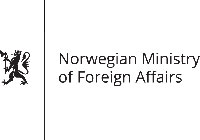.jpg)
A new meeting of the Superior Council of Magistracy (SCM) starts with a wave of resignations. After in recent weeks, several judges quitted the judiciary, the resignations of other 16 magistrates will be examined by members of SCM on Tuesday, December 6. Some of them ground their decision by the latest legislative changes by which pensions of judges would decrease considerably and the retirement age would increase. Last week, the Council issued a negative opinion on the draft law on pension reform. Some members of SCM warn that the mass exodus of magistrates can cause serious problems in the system.
UPDATE 9.30 Magistrate Elena Tverdohleb from Briceni Court withdrew her resignation, and the examination of the resignations filed by Alexandru Gheorghies from Balti Court of Appeal and Vasile Schiopu from Ungheni Court was postponed. The meeting last about 40 minutes and the members of SCM did not ask any questions about resignations.
Resignations to SCM were submitted by 5 judges from Chisinau Court of Appeal: Borislav Babenco, Victor Pruteanu, Evghenii Sanduta, Nichifor Corochii and Vladimir Brasoveanu; 3 judges from Balti Court of Appeal: Vera Toma, Ana Albu and Alexandru Gheorghies; Iuliana Oprea and Valentina Clevadi from the Supreme Court of Justice and many magistrates from the first instance courts: Ludmila Cernei from Ciocana District Court of the capital, Elena Tverdohleb from Briceni District Court, Serghei Procopciuc from Orhei Court, Dumitru Mirzenco from Straseni Court, Grigore Siscanu from Nisporeni Court and Vasile Schiopu from Ungheni Court.
All meetings of SCM held in the past weeks started with examination of issues related to resignation letters. In the last meeting from November 29, members of the Council approved the resignation of their colleague Tatiana Raducanu, judge at the Superior Council of Magistracy and a fierce critic of the system. Several magistrates confess that the reason they decided to withdraw is the initiative to review the legislation of judges’ retirement. Under the stipulations, the magistrates would be fired like other categories of employees. Specifically, the pension of a judge shall not be calculated in the amount of 55-80% of salary in office, but in general terms - about 30% of salary when they leave the system. Moreover, judges who resign or retire would be deprived of dismissal indemnity equal to 50% of average monthly salary multiplied to the number of years of experience as a judge.
Late last week, SCM issued a negative opinion on the draft law for amending and supplementing certain legislative acts on the pension system reform, stating that judges will not accept new changes. Even so, the Government gave green light to pension reform project on Monday, December 5, and will be debated in Parliament.
Member of SCM Vera Toma admits that such reform is necessary, but according to her, its implementation turns the system aside. "I agreed to become a judge in certain circumstances and I have the right to benefit from these special conditions, especially that I had some restrictions all my life, I've always had a busy schedule and this is simply a painful situation. I understand that reforms are needed, but they should not be made in this way and in a so limited time. What independent judge can one be if he/she is deprived of some material guarantees? ", said magistrate from Balti Court of Appeal.
Dumitru Visternicean, her colleague in the SCM argues that this is a fast track reform and the opinion of magistrates was not considered. "Perhaps, they discussed this issue with various interested categories, as Prime Minister said, but not with representatives of the judiciary. We, as members of SCM, we cannot tell our colleagues what was discussed, conditions etc., because nobody informed us", he said for Anticoruptie.md.
According to the magistrate, the situation is critical in the judiciary. "Reserve list of candidates for the seat of judge is insufficient. You see that both judges from first instance courts and from courts of appeal, and from the Supreme Court of Justice quit the judiciary and filling in vacancies in higher courts is more serious, more complicated", said Visternicean. Asked if he might withdraw from the system, the judge said that he did not exclude such a possibility: "If there is a sudden break, I do not know if someone examines potential consequences. We speak about the quality of justice, reforms, but when the judges work in stressful conditions and are kept guessing, as the result will be. "
„Some influential judges quit the system ”
Forty-five judges filed resignations in the period January 1- December 6 2016 (inclusively), of which 3 judges from Supreme Court of Justice, 16 judges from the courts of appeal and 26 judges from courts. Offices of Tatiana Raducanu and Vera Toma from SCM will be replaced by Ion Druta (from the Supreme Court of Justice) and Nina Cernat (from the courts of appeal). The latter were elected as suppleant members in the General Meeting of Judges from November 22, 2013. New members of the Council will be elected in autumn 2017.
Nina Cernat, former president of the Civil and Administrative Litigation College of the Supreme Court of Justice appeared in a media scandal, after an investigation carried out under a project developed by the Center for Investigative Journalism was published. Reporters revealed in 2012 that the judge lived in a luxury building in the capital, registered on the name of her mother-in-law, a pensioner aged 80. The old woman asked the court for damages of tens of millions of lei from the company that built the residential complex because it had not completed the construction work on time. Court of Appeal Chisinau granted her 25 million lei as moral and material damage, but the Supreme Court of Justice (SCJ) quashed the judgment. Former minister of Justice Oleg Efrim informed the prosecutors but they refused to start the criminal case. Later, Nina Cernat and Ion Muruianu, former president of SCJ were transferred to the Court of Appeal. Both of them complained to the ECHR.
On the other hand, Ion Druta is among the magistrates who would be responsible for knowingly issuance of "decision contrary to law in the case of the Latvian company Aroma Floris". In mid 2015, the then general prosecutor Corneliu Gurin requested to issue the consent for prosecution and bringing to account the judges of the Supreme Court of Justice Ion Druta, Iulia Sircu and Valentina Clevadi, but SCM rejected the request. Also, he is among the judges of the Supreme court of Justice reprimanded for the decision to grant 14 million lei to the company Basconslux in the case of the Republican Stadium. Again, they were saved by SCM.
Ion Guzun, expert at the Legal Resources Centre in Moldova agrees that the resignation of some experienced and professional judges will have a negative impact on the quality of justice. "Indeed, principled judges quit the judiciary. They adopt reasoned and legal decisions or formulate separate opinions. We have problems with the quality of judgments, but now this will be felt even more. A good judge is not trained one day, a year or five. We do not mean the vacancies from the courts of appeal or from the Supreme Court of Justice. Resignation of influential judges from the judiciary will have a negative impact. I do not want to believe that this mass exodus of some experienced judges is convenient to others", said Ion Guzun.
Also, he warns that even if they make changes in the pension system, pensions of judges will remain some of the highest compared with those of other state institutions: "We must not forget that we have allowances or pensions worth some hundreds of lei for many categories of people".
Textele de pe pagina web a Centrului de Investigații Jurnalistice www.anticoruptie.md sunt realizate de jurnaliști, cu respectarea normelor deontologice și sunt protejate de dreptul de autor. Preluarea textelor știrilor și a investigațiilor jurnalistice se realizează în limita maximă de 500 de semne. În mod obligatoriu, în cazul paginilor web (portaluri, agenții, instituţii media sau bloguri) trebuie indicat şi linkul direct la articolul preluat de pe www.anticoruptie.md în primul alineat, iar în cazul posturilor de radio și TV – se citează obligatoriu sursa.
Preluarea integrală a textelor se poate realiza doar în condiţiile unui acord prealabil semnat cu Centrul de Investigații Jurnalistice.
Donors:






Partners:









